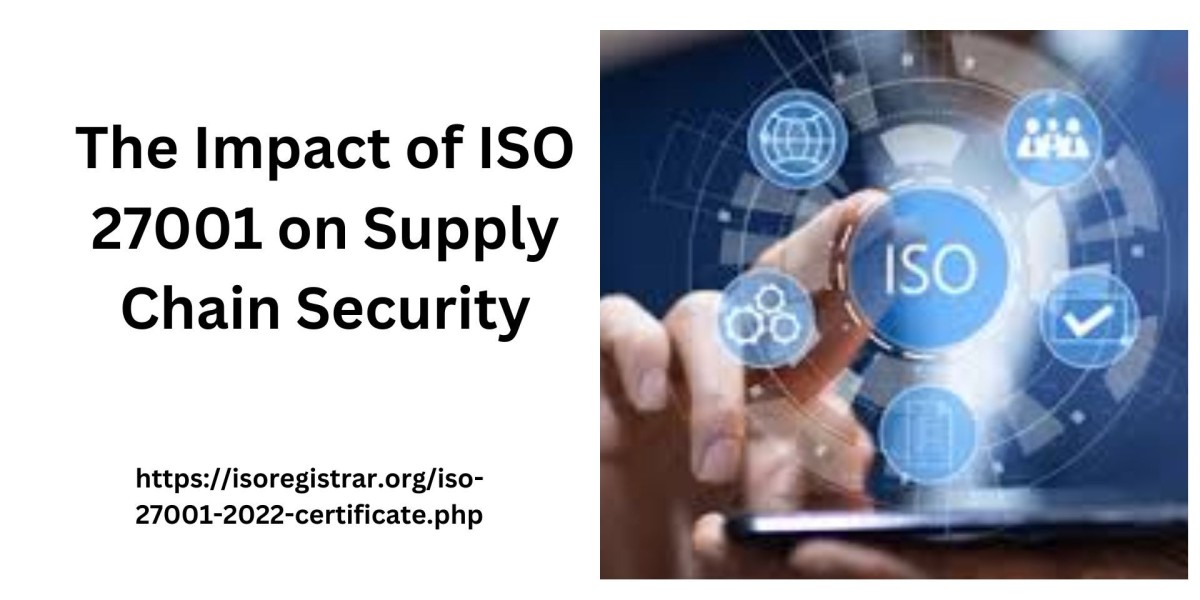In an increasingly interconnected world, organizations are more reliant than ever on their supply chains. With this reliance comes heightened risks, particularly concerning data security. ISO 27001 certification, an internationally recognized standard for information security management systems (ISMS), provides a robust framework for managing sensitive information and mitigating risks. This article explores the significant impact of ISO 27001 on supply chain security, highlighting its benefits, key principles, and best practices.
Understanding ISO 27001 and Supply Chain Security
ISO 27001 establishes a systematic approach to managing sensitive information, ensuring its confidentiality, integrity, and availability. By implementing an ISMS, organizations can effectively identify and manage information security risks associated with their operations and supply chains.
Supply chain security encompasses the strategies and measures taken to protect sensitive data and assets throughout the supply chain, from suppliers to customers. With cyber threats growing in sophistication, organizations need to enhance their supply chain security posture.
The Importance of Supply Chain Security
Supply chains are complex ecosystems involving multiple stakeholders, including suppliers, manufacturers, distributors, and customers. This complexity increases the potential for vulnerabilities, making effective security measures crucial. A data breach or security incident within any part of the supply chain can have far-reaching consequences, including financial losses, reputational damage, and regulatory penalties.
Moreover, the growing emphasis on data privacy regulations, such as GDPR and CCPA, mandates organizations to ensure that their supply chains comply with stringent data protection requirements. Implementing ISO 27001 can significantly enhance supply chain security and mitigate associated risks.
Benefits of ISO 27001 for Supply Chain Security
1. Comprehensive Risk Assessment
One of the foundational elements of ISO 27001 is risk assessment. Organizations are required to identify, evaluate, and prioritize information security risks associated with their supply chains. This process enables organizations to understand their vulnerabilities and implement appropriate controls to mitigate these risks effectively.
2. Standardized Security Practices
ISO 27001 provides a set of standardized practices and controls that organizations can adopt to enhance their information security posture. By implementing these practices across the supply chain, organizations can ensure a consistent approach to security, regardless of the specific stakeholders involved.
3. Enhanced Vendor Management
ISO 27001 emphasizes the importance of vendor management in maintaining supply chain security. Organizations are required to assess the security practices of their suppliers and partners, ensuring that they meet established security standards.
4. Improved Incident Response
A key component of ISO 27001 is the establishment of incident response plans. By implementing effective incident response strategies, organizations can respond quickly and efficiently to security breaches or data incidents that may occur within their supply chains.
5. Regulatory Compliance
With the increasing focus on data protection regulations, compliance is paramount for organizations operating within complex supply chains. ISO 27001 provides a framework that aligns with various legal and regulatory requirements, helping organizations ensure compliance across their supply chains.
By achieving ISO 27001 certification, organizations can demonstrate their commitment to information security and compliance, which is particularly important when dealing with customers and partners who require adherence to specific security standards.
6. Increased Customer Trust
In an era where consumers are more conscious of data security and privacy, organizations that implement ISO 27001 can gain a competitive edge. Certification to ISO 27001 signals to customers and stakeholders that the organization prioritizes information security and is committed to protecting sensitive data throughout the supply chain.
Key Principles of ISO 27001 for Supply Chain Security
1. Leadership Commitment
Effective implementation of ISO 27001 requires strong leadership commitment. Top management must actively support and promote information security initiatives within the organization and across the supply chain. This commitment sets the tone for a culture of security and ensures that resources are allocated to enhance supply chain security.
2. Continuous Improvement
ISO 27001 promotes a culture of continuous improvement, encouraging organizations to regularly assess and enhance their information security practices. This principle is especially important for supply chain security, as threats and vulnerabilities evolve rapidly.
3. Stakeholder Engagement
Engaging stakeholders throughout the supply chain is essential for successful ISO 27001 implementation. Organizations should foster open communication with suppliers, partners, and customers to understand their security needs and concerns.
Steps to Obtain ISO Certification
Visit the ISO Certification Website: Go to the official website for ISO certification.
Fill Out the Registration Form: Complete the ISO Certification Registration Form and submit it.
Make Payment: After submission, a payment option will appear. Pay the required fee to proceed.
Upload Required Documents: Once payment is made, upload any necessary files for the next steps.
Await Follow-Up: An executive will call you to discuss the next steps regarding your application.
Receive Your Certificate: Your ISO certificate will be emailed to you within 5 to 7 business days.
Best Practices for Implementing ISO 27001 in Supply Chain Security
1. Conduct Thorough Risk Assessments
Regularly perform comprehensive risk assessments to identify vulnerabilities within the supply chain. Involve key stakeholders in this process to ensure that all perspectives are considered and that risks are effectively mitigated.
2. Establish Clear Security Policies
Develop clear and concise security policies that outline expectations for all stakeholders within the supply chain. These policies should be communicated effectively to ensure that everyone understands their roles and responsibilities regarding information security.
3. Foster Collaboration and Training
Encourage collaboration among supply chain partners and provide training on security best practices. By fostering a culture of security awareness, organizations can empower all stakeholders to take an active role in protecting sensitive information.
4. Monitor and Evaluate Security Controls
Regularly monitor and evaluate the effectiveness of implemented security controls. This ongoing assessment helps organizations identify weaknesses and areas for improvement, ensuring that supply chain security measures remain robust.
5. Prepare for Incident Response
Establish a well-defined incident response plan that outlines procedures for addressing security incidents within the supply chain. Ensure that all stakeholders are familiar with the plan and conduct regular drills to test its effectiveness.
Note: You can apply for an ISO 9001 Certificate for a quality management system
Conclusion
ISO 27001 plays a crucial role in enhancing supply chain security in todays data-driven landscape. By implementing the standard's principles and practices, organizations can effectively manage information security risks, ensure compliance, and foster trust among stakeholders.
As supply chains become increasingly complex and interconnected, the importance of robust security measures cannot be overstated. Organizations that prioritize ISO 27001 will not only strengthen their supply chain security posture but also position themselves for success in an evolving business environment. By embracing the principles of ISO 27001, organizations can safeguard sensitive data, build resilience, and maintain competitive advantage in the marketplace.









